Ethiopia Launches Groundwater Mapping Initiative to Bolster Water Security
Ethiopia has officially inaugurated a comprehensive five-year project aimed at revolutionizing the nation’s approach to groundwater resource management and securing its water future in the face of increasing climate challenges.
The “Rapid Groundwater Resource Mapping Programme for Integrated Water Resources Management in Ethiopia” was launched this week with a kick-off meeting held on April 28th and 29th at the Ministry of Water and Energy (MoWE) in Addis Ababa.
This pioneering initiative, generously funded by the Royal Danish Embassy, marks a strategic alliance between Ethiopia’s MoWE, Haramaya University, and Denmark’s Aarhus University.
The program is set to integrate state-of-the-art geophysical technologies to significantly enhance Ethiopia’s capacity to locate, sustainably manage, and protect its crucial groundwater reserves.
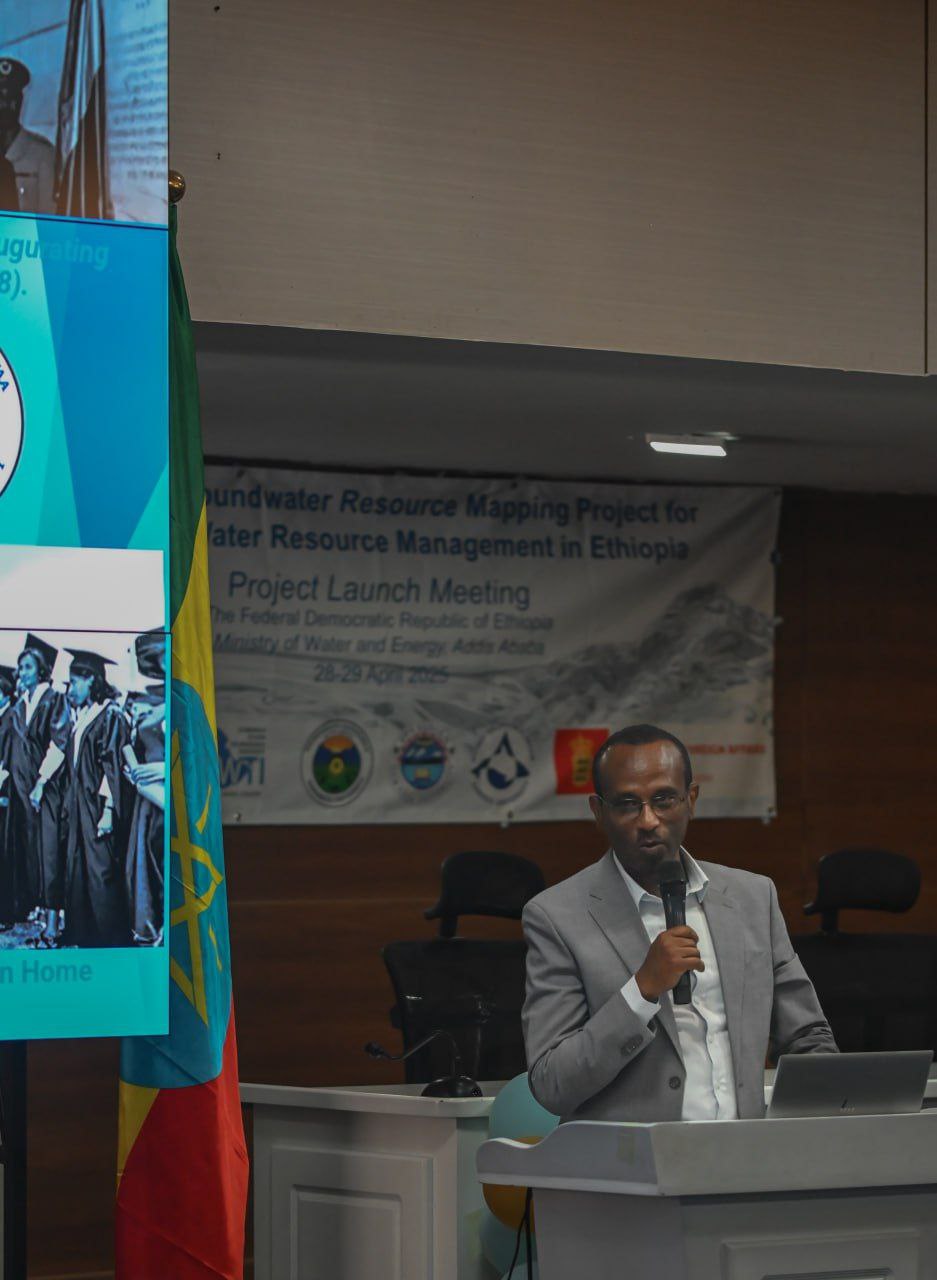 Dr. Asfaw Kebede, the project leader from Haramaya University, underscored the program’s core objective: “The ‘Rapid Groundwater Resource Mapping Programme’ is strategically designed to embed modern geophysical technologies within Ethiopia’s water sector, thereby significantly improving our capacity to identify and manage crucial groundwater resources. Crucially, the project will focus on cultivating human, organizational, and institutional expertise to underpin climate-resilient water resources management across the country.”
Dr. Asfaw Kebede, the project leader from Haramaya University, underscored the program’s core objective: “The ‘Rapid Groundwater Resource Mapping Programme’ is strategically designed to embed modern geophysical technologies within Ethiopia’s water sector, thereby significantly improving our capacity to identify and manage crucial groundwater resources. Crucially, the project will focus on cultivating human, organizational, and institutional expertise to underpin climate-resilient water resources management across the country.”
The project employs a two-pronged approach. The first track, led by Haramaya University in close collaboration with Aarhus University, focuses on cultivating the next generation of water management experts. This involves integrating advanced geophysical techniques, including transient electromagnetics (TEM) and electrical resistivity tomography (ERT), into university curricula. Through joint curriculum development, collaborative teaching, engaging theoretical instruction, and practical field exercises, the program aims to equip over 120 students and professionals in the water sector with the essential skills for sustainable water management.
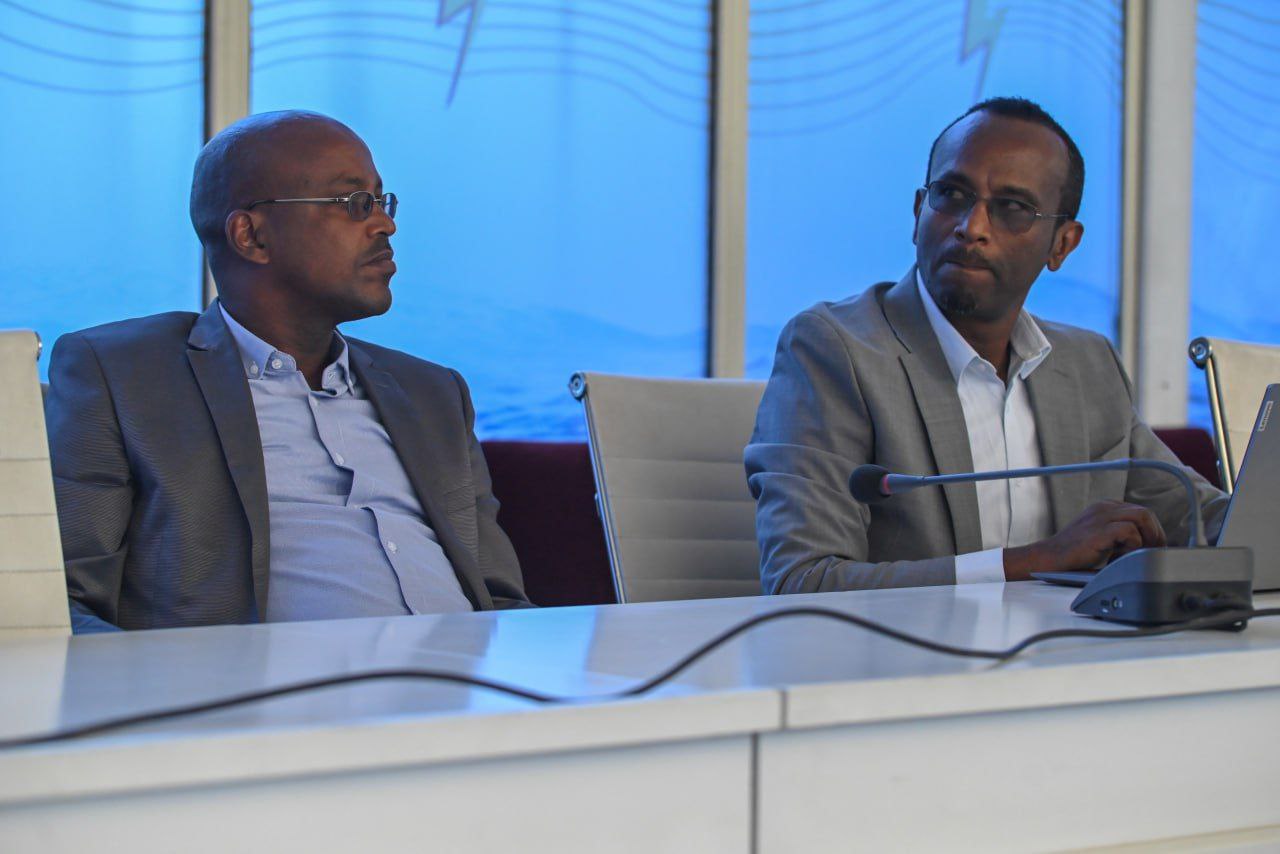 The second critical component involves collaborative pilot studies conducted by joint teams from Aarhus University and Haramaya University. These targeted geophysical surveys will provide vital support for specific Integrated Water Resources Management (IWRM) projects across Ethiopia, generating crucial, localized data on groundwater systems.
The second critical component involves collaborative pilot studies conducted by joint teams from Aarhus University and Haramaya University. These targeted geophysical surveys will provide vital support for specific Integrated Water Resources Management (IWRM) projects across Ethiopia, generating crucial, localized data on groundwater systems.
The resulting insights will be meticulously documented in compelling case studies and widely disseminated through detailed reports, publications in leading peer-reviewed journals, and presentations at prominent international conferences. According to Dr Asfaw explanation this strategy will not only demonstrate the efficacy of geophysical methods but also encourage their broader adoption.
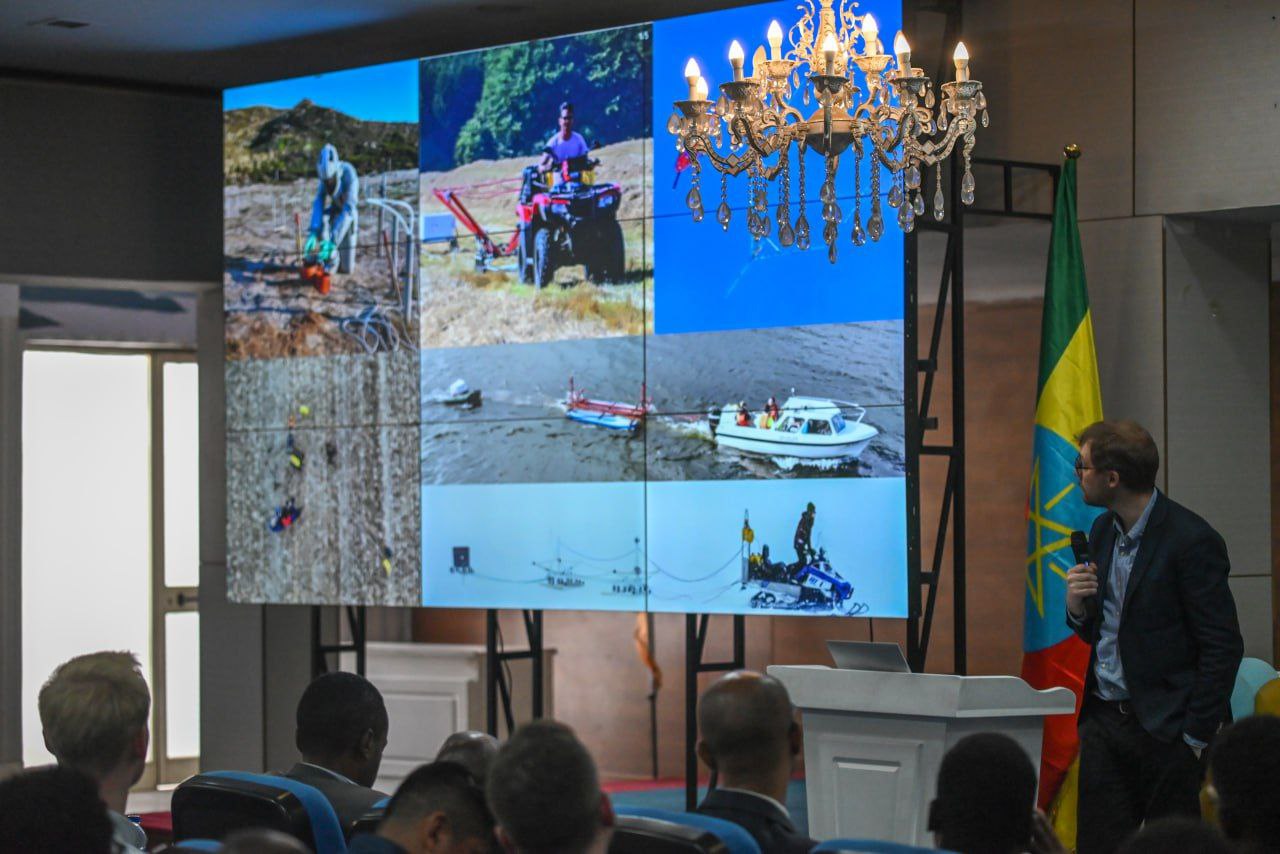 Dr. Anders Vest Christiansen, Technical Team Leader of the project from Aarhus University, elucidated the functionality of the new Transient Electromagnetics (sTEM) and Electrical Resistivity Tomography (ERT) technologies, drawing an analogy to medical imaging: “These technologies function similarly to medical diagnostic tools like CT scans or MRIs. Just as those technologies visualize structures beneath the human skin, sTEM and ERT scan beneath the Earth’s surface to produce detailed profiles of aquifers. This advanced imaging will greatly assist geologists and water professionals in making more informed and efficient decisions when identifying areas with groundwater potential.”
Dr. Anders Vest Christiansen, Technical Team Leader of the project from Aarhus University, elucidated the functionality of the new Transient Electromagnetics (sTEM) and Electrical Resistivity Tomography (ERT) technologies, drawing an analogy to medical imaging: “These technologies function similarly to medical diagnostic tools like CT scans or MRIs. Just as those technologies visualize structures beneath the human skin, sTEM and ERT scan beneath the Earth’s surface to produce detailed profiles of aquifers. This advanced imaging will greatly assist geologists and water professionals in making more informed and efficient decisions when identifying areas with groundwater potential.”
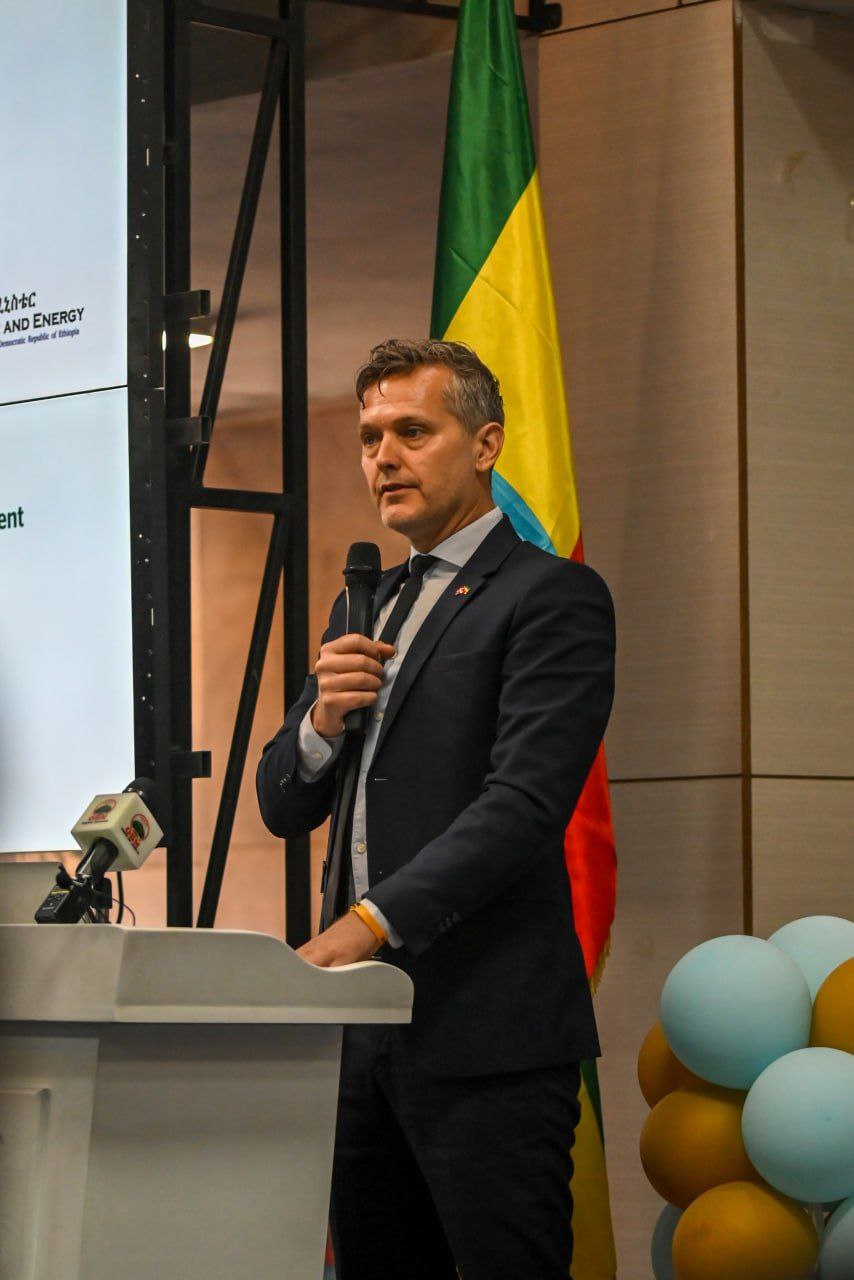 The Ambassador of Denmark to Ethiopia, Mr. Sune Krogstrup, conveyed the Danish government’s satisfaction in supporting Ethiopia’s integrated water resource management efforts through this significant project milestone. He emphasized that the adoption of advanced geophysical technologies—such as Transient Electromagnetics (sTEM) and Electrical Resistivity Tomography (ERT)—for groundwater mapping in Ethiopia will substantially improve the assessment of groundwater potential and facilitate the identification of optimal borehole locations.
The Ambassador of Denmark to Ethiopia, Mr. Sune Krogstrup, conveyed the Danish government’s satisfaction in supporting Ethiopia’s integrated water resource management efforts through this significant project milestone. He emphasized that the adoption of advanced geophysical technologies—such as Transient Electromagnetics (sTEM) and Electrical Resistivity Tomography (ERT)—for groundwater mapping in Ethiopia will substantially improve the assessment of groundwater potential and facilitate the identification of optimal borehole locations.
Furthermore, he highlighted the project’s contribution to building the capacity of involved stakeholders and academic institutions.
FDRE Minister of the Ministry of Water and Energy (MoWE), Dr.-Ing. Habtamu Itafa, officially opened the project kickoff, underscoring the Ethiopian government’s ongoing commitment to meeting the population’s water needs through the sustainable utilization of groundwater resources. He emphasized the significant reliance of urban areas, including Addis Ababa, on groundwater, making such initiatives crucial for national development. He affirmed that these efforts directly support the government’s dedication to harnessing and managing these vital resources.
On behalf of the Ministry, he expressed sincere gratitude to the Danish government and the Embassy in Addis Ababa for their financial support in advancing groundwater mapping and for introducing innovative technologies into Ethiopia’s water management systems.
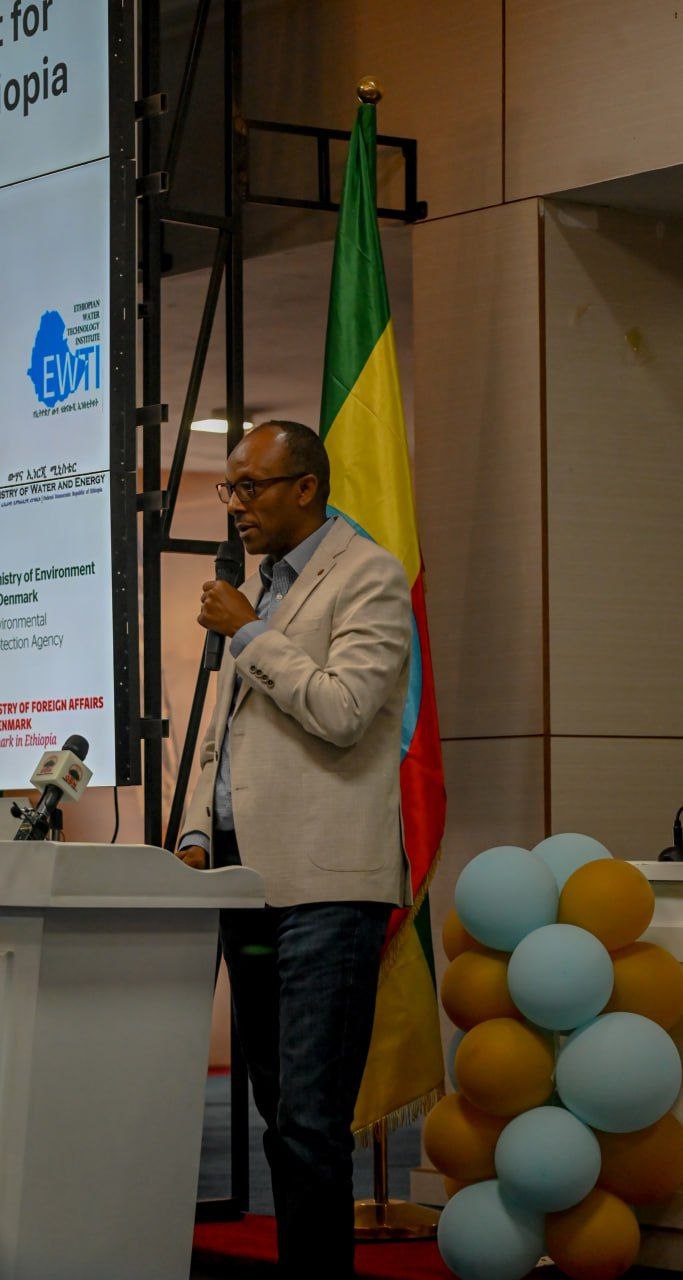
Dr.-Ing. Habtamu urged universities to capitalize on this opportunity to acquire practical experience, enhance technical capabilities, and collaborate closely with Aarhus University. He reiterated MoWE’s unwavering support for the project’s implementation over the next five years and beyond.
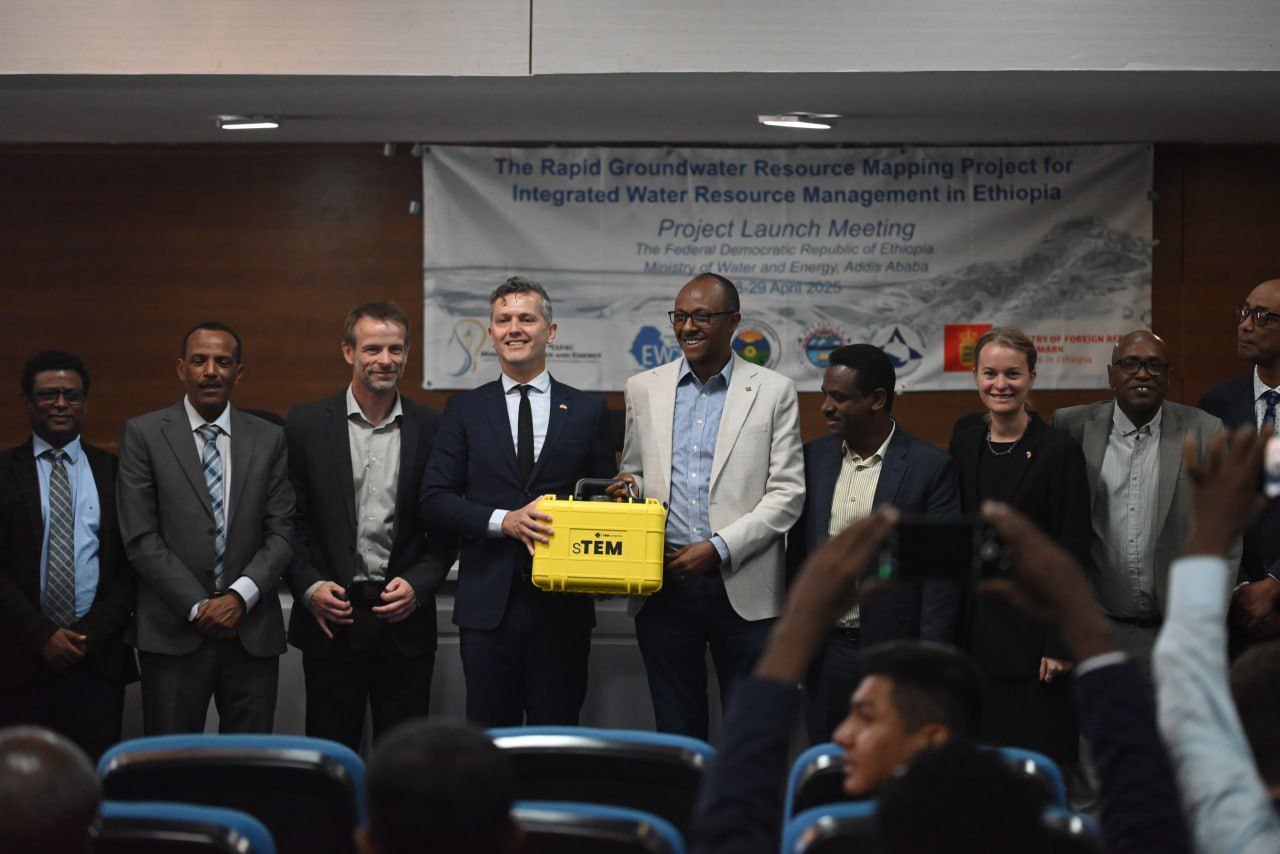 The launching event was attended by esteemed guests, including H.E. Mr. Sune Krogstrup, the Ambassador of Denmark to Ethiopia, and H.E. Dr. Ing. Habtamu Itafa, the Minister of Water and Energy. Delegates from Aarhus University, notably Dr. Anders Vest Christiansen and Dr. Denys Grombacher, also participated, alongside key representatives from Haramaya University, including Dr. Yisak Yusuf, the Vice President for Research and Community Engagement, and Dr. Asfaw Kebede and his dedicated team.
The launching event was attended by esteemed guests, including H.E. Mr. Sune Krogstrup, the Ambassador of Denmark to Ethiopia, and H.E. Dr. Ing. Habtamu Itafa, the Minister of Water and Energy. Delegates from Aarhus University, notably Dr. Anders Vest Christiansen and Dr. Denys Grombacher, also participated, alongside key representatives from Haramaya University, including Dr. Yisak Yusuf, the Vice President for Research and Community Engagement, and Dr. Asfaw Kebede and his dedicated team.
This landmark collaborative initiative represents a significant leap forward in addressing critical water data gaps in Ethiopia.
 By strengthening technical expertise and deploying advanced mapping techniques, the project is poised to facilitate informed decision-making and ensure more sustainable and equitable access to clean water for communities across the nation, thereby profoundly contributing to Ethiopia’s long-term water security.
By strengthening technical expertise and deploying advanced mapping techniques, the project is poised to facilitate informed decision-making and ensure more sustainable and equitable access to clean water for communities across the nation, thereby profoundly contributing to Ethiopia’s long-term water security.
Haramaya University Public & International Relations Directorate
